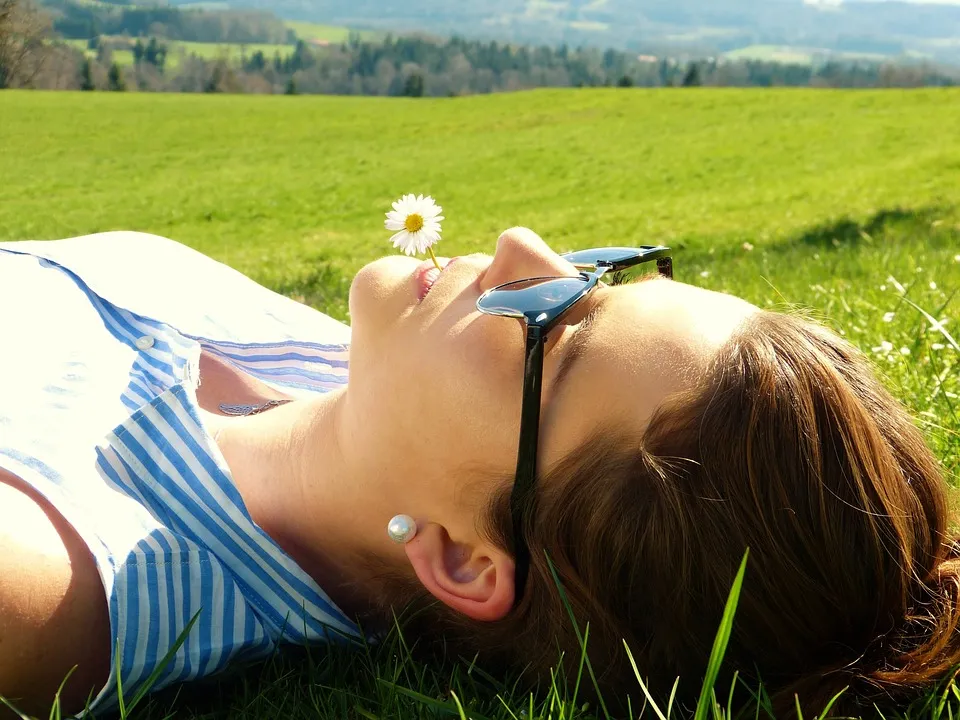7 Tips For Adjusting
to the Time Change
Dec 7, 2022 | By: Hope for the Journey

Do you find yourself anxious about the beginning or the end of daylight saving time (DST)? Learning how to adjust to daylight savings time can help protect you from seasonal depression and generally just feeling off at that time of year. We recognize how change can be uncomfortable and can trigger some icky feelings and disrupt our sleep cycle. Before we move into some helpful tips to manage the adjustment, here are some insights into DST:
About Daylight Savings Time
DST has been practiced in the United States and many European countries since World War I. This was due to making an effort to conserve fuel that was needed to produce electric power. DST was not officially adopted by the United States until March 19, 1918 and helped to establish standard time zones.
Each year, beginning on the second Sunday in March, our clocks are set one hour ahead. On the first Sunday in November, our clocks are set back an hour to standard time. Since the adoption of the practice, there have been ongoing disputes about the continued practice of DST and the implications it may or may not have on potential health and safety concerns, such as effects on mood disorders (like seasonal depression) and the disruption it can cause to our sleep cycle.
Seasonal Depression
Studies have shown that depression, anxiety, and suicidal thoughts increase around the time change. People tend to experience seasonal depression symptoms during the fall and winter months because of the lack of and or limit of sunlight that we can be exposed to during these seasons.
Some symptoms of seasonal depression include the following:
· Feeling sad or depressed
· Loss of interest in previously enjoyed activities
· Eating more carbohydrates
· Sleeping too much
· Low energy and or feeling tired
· Feelings of restlessness
· Feelings of guilt or worthlessness
· Having difficulty making decisions and or concentrating
· Reoccurring thoughts about death or suicide
People who experience seasonal depression tend to experience the following symptoms each year, during the fall, winter, or sometimes also in the spring and summer seasons. People who suffer from seasonal depression, might find themselves feeling well the rest of the year. Moreover, people who experience seasonal depression are also already vulnerable to disturbances in their natural body clock, which the time change can possibly make depression symptoms heighten by disrupting the body clock even further.

How To Adjust To Daylight Savings Time Tip #1: Stick with Your Normal Bedtime Routine
It is important that we try to get at least seven hours of sleep the days before and after the time change. The closer we stick to our normal bedtime routine, the quicker our bodies will adjust to the time change.
How To Adjust To Daylight Savings Time Tip #2: No Caffeine Before Bed
Limiting caffeine consumption for up to four to six hours before bedtime can be helpful, due to it allowing your body enough time to reach a relaxed state that can make it easier to fall asleep at a reasonable time.
How To Adjust To Daylight Savings Time Tip #3: Limit Exercise Right Before Bedtime
Exercise is a great form of self-care many people use to maintain a healthy balance in their life. However, exercising right before bedtime can make it extremely difficult to fall asleep because exercise raises our body temperatures and makes it hard for us to get comfortable. It is helpful to avoid exercising within four hours of bedtime, so that it gives your body enough time to regulate your body temperature.
How To Adjust To Daylight Savings Time Tip #4: Limit Electronics
The high intensity light from electronic screens affect melatonin (a hormone that creates sleepiness), this light stimulates our brain and can make it extremely difficult to fall asleep during our bedtime. If you find that before bedtime your brain is needing stimulation, it can be helpful to read a book, color, and or complete a word puzzle before bed.
How To Adjust To Daylight Savings Time Tip #5: Practice a Regular Dinnertime
During the days close to the time change, it can be helpful to eat at the same time or even eat a bit earlier, because it helps our body’s natural clock get synchronized with the time change.
How To Adjust To Daylight Savings Time Tip #6: Get Some Sunlight
Our body needs natural sunlight to provide us with valuable nutrients and vitamins that can have a positive impact on our emotional state. You may want to practice going outside in the morning, so that you can get some morning sunlight exposure. Having shorter daylight hours can have a negative impact on our mood and energy levels.
How To Adjust To Daylight Savings Time Tip #7: Preparation
If you are someone who really struggles with adjusting to the time change, it may be useful to adjust your sleep and wake times two to three days before the time change. You can practice shifting bedtime to 15 to 20 minutes each night, which can help your body to make gradual shifts and slowly adjust.

Feel stuck on how to get out of the DST rut?
At Hope For The Journey, we recognize that life can sometimes be full of challenges and unforeseen events that can sometimes make us feel stuck or impact how we see ourselves and others around us. Our staff of wonderful therapists can help you to overcome your struggles, by helping you develop skills that you can use and apply to your daily life. To start therapy with Hope For the Journey, please follow these steps:
1. Contact Hope for the Journey
2. Meet with a caring therapist
3. Start receiving the support you and your teen deserve.
Other Services Offered At Hope For The Journey
Our team is happy to offer a number of services from our Round Rock and Austin therapy offices. Mental health services include therapy for anxiety and depression, domestic violence, sexual assault, PTSD, and EMDR. Our team also provides support for family members of all ages with counseling for teens and young adults, children and tweens, couples, men, and parents/partners. Contact us today to learn more about our team and community involvement!
